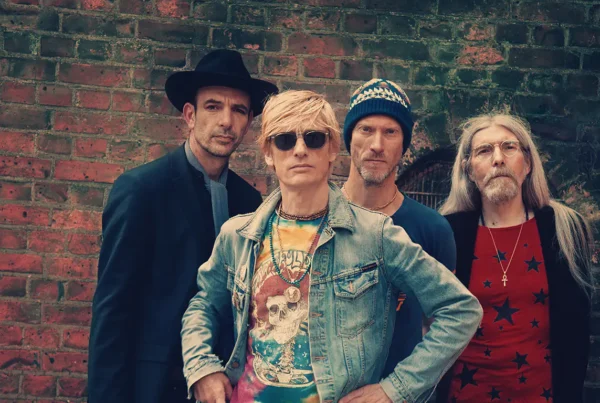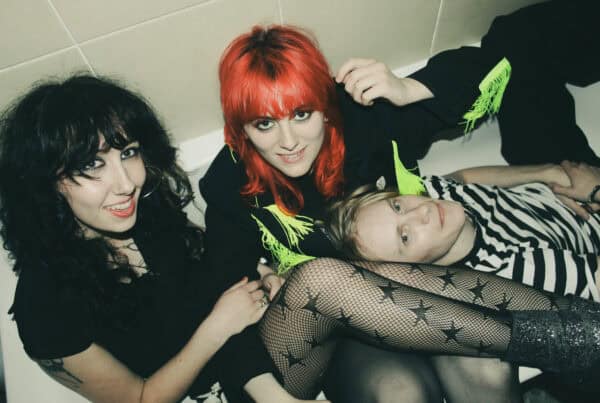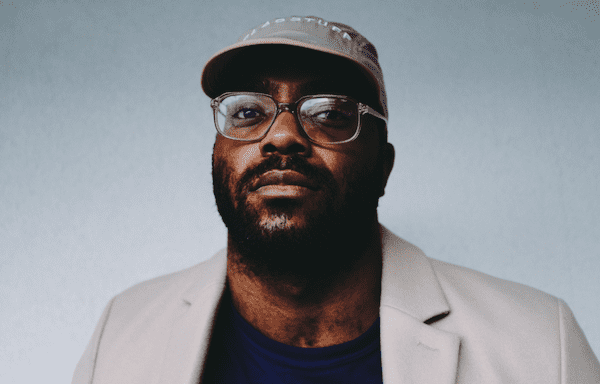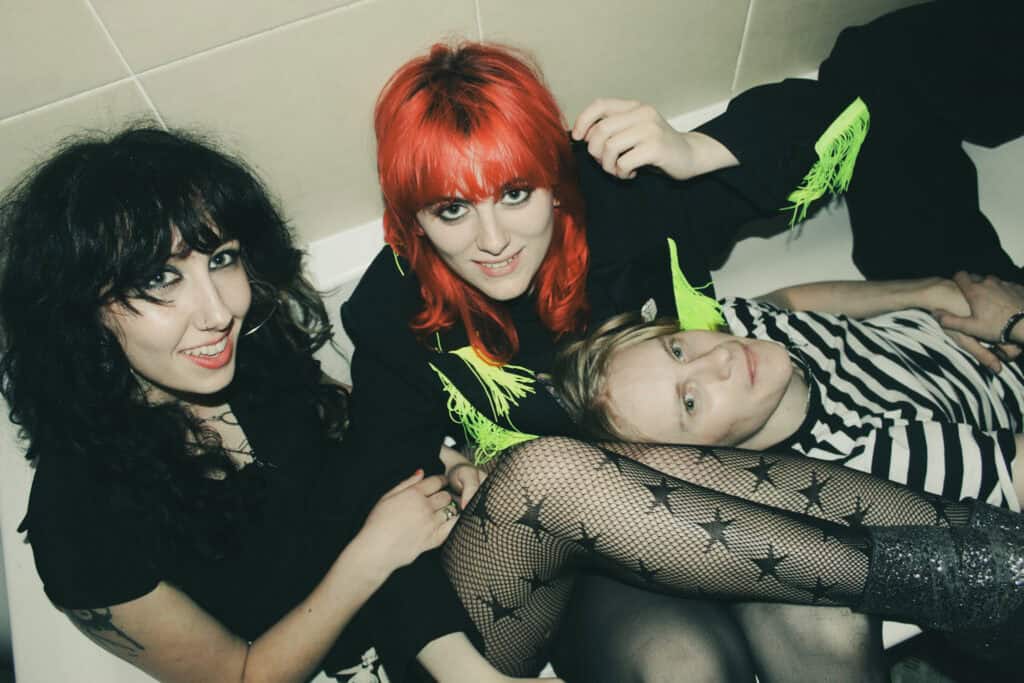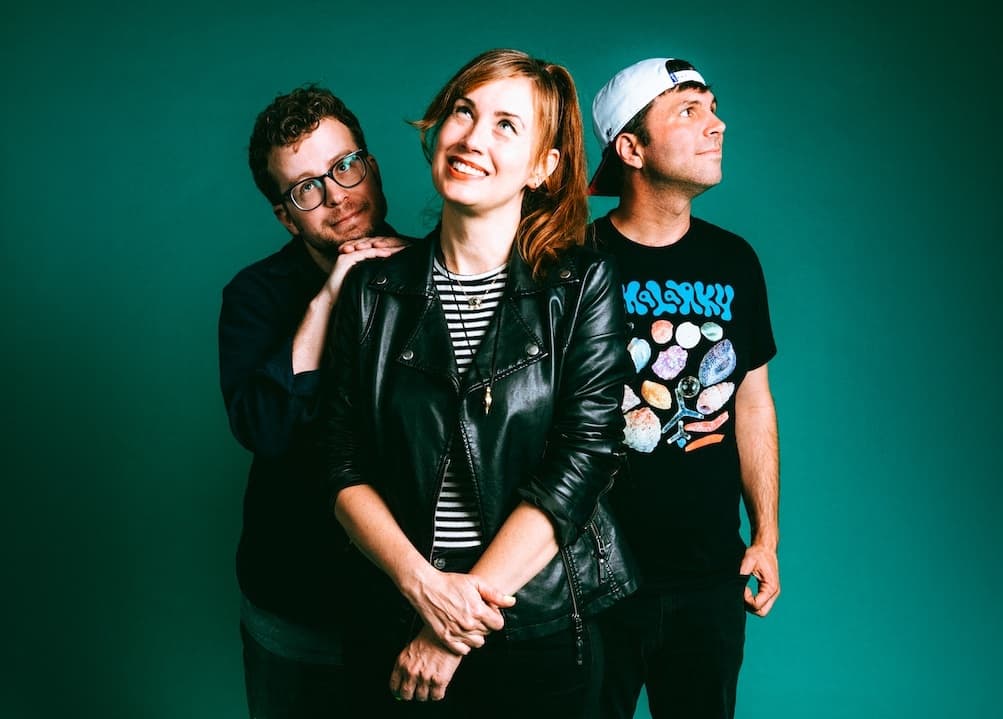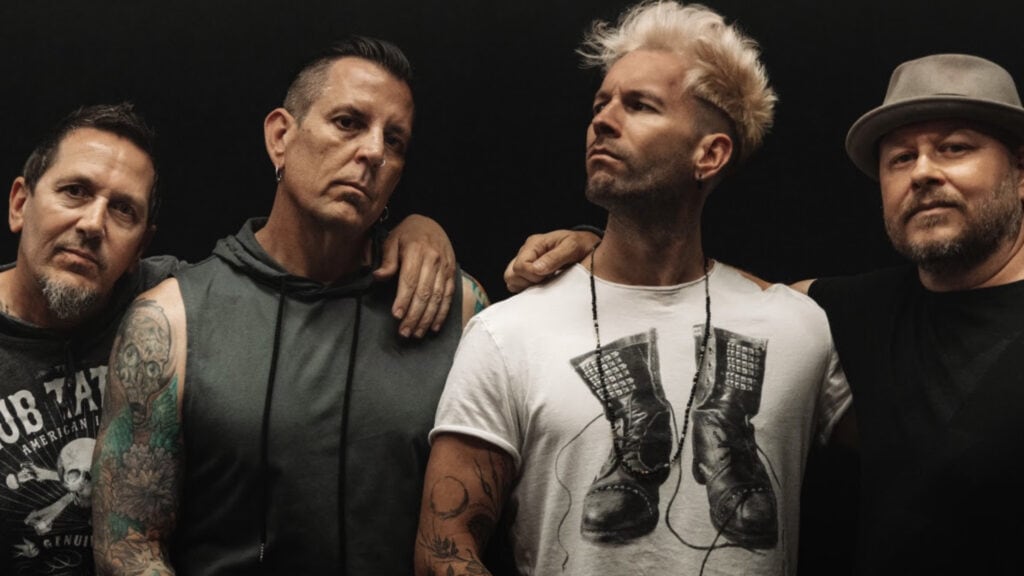Soundspheremag sits down with the soulful, happy-go-lucky, acoustic music artist Boss Caine (also known as Daniel Lucas, also known as GT Turbo) for an insightful interview which covers the span of his career and “rollercoaster” life so far…
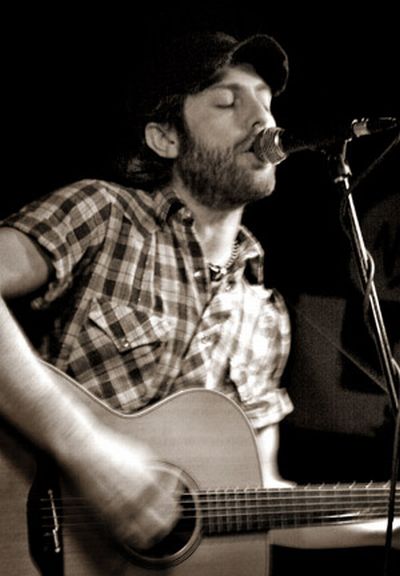
S] Can you give an intro of yourself for the readers?
B] “I am Daniel Lucas, the key man within Boss Caine. The group is a collective of friends that pitch in and play on my songs, as well as doing a lot on my own. As a performer though, I am also known simply as Daniel Lucas and GT Turbo, which gets incredibly confusing.”
S] When did you first take a serious interest in music? And has your current style evolved from something different since that starting point?
B] “The second I heard music, I was obsessed with it but I was only allowed to listen to classical music growing up as a kid. Dad was really strict like that, so when he was out at the pub I used to sneak in my mum’s records including The Beatles and Neil Diamond, but I was made to learn classical piano then. When I was teenager I got into rock stuff and played in punk bands, then when the last heavy band I was in disbanded. I moved on to playing acoustic rather than electric and the whole new stuff kind of came from that.”
S] So just kind of evolved really…
B] “Yeah. Some of the people have been playing with me for years and some people would just be there for a solo gig but it would change the way certain things sounded and make me want to incorporate banjo and things like that, but it’s all written by just me on an acoustic.”
S] How do you go about writing new material in terms of thought processes and stages?
B] “It varies. The stuff I know I care most about, tends to just come; it’s there when it’s there. It is melody and words at the same time, with at least a good idea and concept. But then I just spend a lot of time sat around with a guitar fiddling away and then I will find something I like and I’ll think about it later and I put words to it. Or I’ll hear a phrase and then I can get some lyrics from that. It does vary loads. Again, the stuff I care about most just comes which is a bit sick in a way because if I spend loads of time slaving over it, I get the least out of it but the stuff I feel like I am just grabbing out of the air you get a massive buzz from. That is just how it is.”
S] You’ve been described as Dylan-esque. Would this be a fair assessment of your sound?
B] “It’s a generous assessment but I’ll take it [laughs]. I love bob Dylan in all his guises. Most people that use that comparison tend to relate that to lyrically because I’m quite wordy with stories, rather than simple hooks and things like that. It’s flattering obviously.” [laughs]
S] Are there any particular places of inspiration where you like to write music?
B] “Not really. If I’ve started to write something somewhere, and it’s very much about that place, and so then to finish it I’d to go back there. I tend to write a lot just wondering around or in the car and travelling to gigs and stuff. Just ideas come into my head; they store up and build up into more than just a little thought. There is nothing more annoying than forgetting a line so even if it’s terrible I have got to write it down.”
S] How did you want to convey yourself as an artist for your album ‘The Ship That Sailed’ and can you tell us about the album?
B] “I didn’t really think too much about how I wanted to convey anything with it. It was more a case that we had more than a hundred songs at that point that had been played in a lot of different ways. I wrote the song ‘The Ship That Sailed’ one Sunday afternoon and it didn’t really feel like anything I wanted to play live but it did feel like a song that tied everything together. I was struggling to pick which songs to put on the first album and that suddenly meant there was a lot of other themes I could tie them into. It wasn’t a concept album as such, as the songs were written over five or six years but there is a constant theme of the sea, departure and leaving. So that song seemed to tie a lot of other songs together. Then when it came to recording it, it started with just getting a good take of me singing and playing guitar then adding things around that, with Andy Gaines and a couple of people pitching in along the way.”
S] Do you find putting such heart felt experiences into a song therapeutic?
B] “Yes definitely. I think initially therapeutic because you’re expressing it and you go through it on your own. Then it becomes therapeutic again when you’ve been playing the song for two or three years and you can completely detach yourself from the situation – kind of forces you to get over things.”
S] So how do you feel when you hear your material played back?
B] “Sometimes hard [laughs], sometimes if it sounds good and I can listen to it in a detached way and like how it sounds musically then that is different. I know what I like in other people’s songs that completely ruin me and reduce me to tears [with emotion]. The first couple of times I played live I was pretty teary whilst doing them but people like it when I suffer [laughs]. It’s pretty awkward at the time.”
S] How do you think the material in ‘Meanwhile Back at the Ranch’ is creatively different to the previous album, ‘The Ship that Sailed’?
B] “Once I did ‘The Ship That Sailed’ I knew what I wanted to do with the next few proper albums in terms of songs and sound. As there were a load of songs that weren’t being used on anything and myself and Mark Wynn were talking about doing a split thing after listening to some punk records. Doing that halves the cost and doubles the audience if you are selling it to different people. So it was songs that I picked that didn’t fit with other stuff, but as it turns out they fit pretty well together. It was more tying up loose ends that weren’t going to get used elsewhere and something we could do quickly without spending months slaving over it.”
S] What have been your biggest inspirations that have influenced your career so far?
B] “Mostly the people directly around me in fairness, Mark [Wynn] especially who was 16 when he started playing with us, and their dedication to it all. Also running the weekly open mic night; we’ve met a lot of younger people coming back through, to see the constant interest in the whole scene and see if kids are into what I’m doing and I’m still into what they’re doing. Keeping the whole thing going, more than any big names that I’ve listened to, it is just directly things around me that are constant.”
S] What does 2011 have in store?
B] “We have just been on the road for about four weeks and going back to York about once a week. I’m keen to keep that going and hopefully get up to the States for a month or so at some point. I’ve got some gigs on the cards out there and it is just a matter of making it worthwhile and getting more stuff lined up. Also, I am in the process of sorting out the second and third albums; one’s going to be fairly acoustic but more upbeat and the other ones got more bands involved on it. I am also meeting some people next week to get some art council funding to put together a big band to do a festival in the summer. I am hoping for a brass section and a swing section – the full works! A big party on stage; I’m really excited about that. We are definitely going to record with those people but obviously to take twenty people and all that equipment on the road is pretty expensive so we are chasing some help from the government for that, but not holding my breath, so we’ll see.” [laughs]
S] Obviously your network has grown over the past few years, how do you think the York music scene has grown over the last few years?
B] “The scene musically has grown vastly over the past few years, but almost proportionately opposite, the scene of people going to gigs has changed; you tend to find the quality of music is great but not reflected by the attendances of people. Just selling tickets in York is notoriously hard anyway as it’s treated like such a tourist town. I think the music scene is amazing and there are some incredible bands out there. There are a lot of people that moan about not having the right venues and good bands, but they’re all there, just the reason why more things aren’t succeeding is because of turnouts at gigs. The acoustic scene is incredible and there’s a good atmosphere going on, with a lot of other indie bands coming through that seem to be really good too like fourteen and fifteen year olds. Just everything is covered in York to a really good standard. People from outside the city seem to come over and appreciate it whereas people in York don’t really seem to appreciate it. It’s strange, but that’s how it is.”
S] For somebody that has toured regularly and moved to London, why did you make the choice to move back up to York?
B] “It isn’t entirely music related! I moved down to London chasing a girl, so most of the songs on the album are about her. It went horribly wrong and I got into a world of debt, but had some great times with gigs and sleeping on floors – pretty much living on my brother’s couch for a year and a half. Some incredible experiences were had but the well ran dry. So, I came back up to York and just happened across the guys at Cardboard Radio the day I moved back. I didn’t know them at all at the time and stuck around and formed a band straight out of that – we hit it off straight away. Had a bit of a bad time in London as well as a good time – it was a bit of a roller-coaster ride, that’s where the songs came from, they are easier to write about from a distance. London’s just so fast-paced and expensive, you end up chasing a sale just to break even. I didn’t have time to cross town to get to people, two hours away on a tube and whatever.”
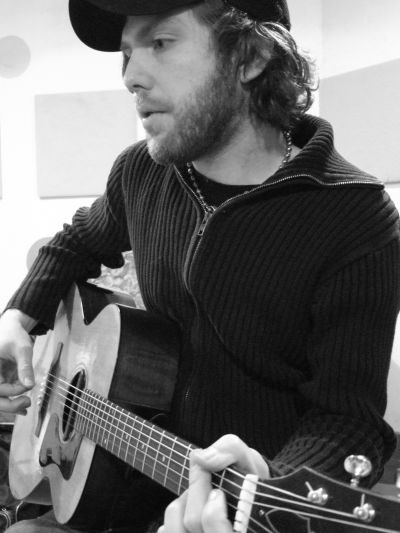
S] You have a number of aliases, can you tell us about them?
B] “It is a lot simpler than it is complicated. GT Turbo came about from a previous band I was playing with. Everyone in the band turned into a caricature and had silly nicknames. It was a lot of fun and trouble, and kind of stuck from there. I didn’t ever want to play anything solo under my own name Daniel Lucas, and then it be Daniel Lucas and the so and sos, as that would be patronising, so I just wanted an umbrella name that would cover anything I did with anyone, some songs definitely don’t fit with the Boss Caine sound. There are plans to do some more noisy stuff with more friends but generally when other people are in other bands things get complicated with timing and having time to make it worthwhile.”
S] What do you enjoy most about your solo work? Are you a bit of a control freak?
B] “No far from it [laughs], if anything it is the opposite. You can turn up and play whenever you want to play and if you’ve got other commitment then that’s fine. It keeps the music spontaneous when people are turning up and it’s not rehearsed, and along the way I’ve become a better guitarist. After just starting out strumming three chord songs to then play them with other people, it seems really boring when you take their stuff away so I ended up putting more into it. When you’re on your own your kind of free to do that and don’t have to worry about keeping up with time changes. I love playing with the band; it’s just the commitment with the people I want to be with. I wouldn’t want to compromise if their tied up doing other things.”
S] What bands in the industry in the area are you a fan of?
B] “98 Pages, obviously I know those guys through acoustic night and jamming at parties. Melody of Your Demise, RSJ…the acoustic stuff I listen to I think is amazing. Edwina Hayes, Joe Solo, Mark Wynn, I genuinely think are amazing, better than most things out there. Not just because they are my friends, it’s a happy co-incidence that they are the people I can hang out with and write with.”
S] Tell us about Little Num Num recordings.
B] “Chris Helme and Andy Gaines did a one-off gig at The Theatre Royal [York] quite a while ago, with lots of bands and solo artists involved in that and it was an all-day thing. Then The Little Num Num Club got started when Chris wanted to do that thing again, so it’s Chris and Andy Gaines that run it. They wanted to have an umbrella name that we could go under, it’s not a funded label, and it’s just people sharing off other people’s names. So when we do flyers we can agree on a name that we are happy with. The artwork, the mastering, the photography, and the production is kind of passed around a circle of friends and they are all musicians themselves, so rather than getting a nine-to-five job, they can still do their gigs and can still earn money. It’s like a self-sufficient cottage industry.”
S] Is it exclusive? Can other bands get involved?
B] “It’s Andy and Chris’ baby really. The only reason why it has been kept to a minimum so far is because of the amount of time it has taken to get everything involved with it. To take other people on board would be eating into the time to get the label set up. Chris Helme has got his new album coming out soon which he has been recording the last few weeks. He has been touring the last two or three years, he’s sold a few thousand copies of that and built up a really solid fan base so the second one coming out is going to be a quite a big deal for the label. As we are all sitting side by side on the website, it’s a nice little knock on effect for all of us on the label really. It’s looking after each other, using and abusing each other’s talents and just keeping the money in house, rather than chipping off money to strangers online for example.”
S] How have your goals changed since you first began up to this point?
B] “When starting out there’s some initial desire for success and recognition. That strangely disappears as things get better and your goal is literally to keep going. I like playing gigs and running open mic nights and playing with other people. Just to keep that going is a better goal than the deal that is never going to happen – the million dollar deal. A lot of bands still seem to be doing that, they seem to quit if they don’t get a deal. You can do so much for yourself, if you want to do it you will.”
S] In your opinion how can a band in York or anywhere succeed commercially?
B] “Just getting out there is key as you will meet people and make fanbases, and you will realise if people come back to see you, you know where to book next time and it’ll grow by word of mouth. Bands like The Fallen are doing it exactly as it should be; getting out there, putting the graft in themselves, hard gigging, really active online, but not intrusively. It is all community based not some faceless band that’s just got some automated machine.”
S] Do you have a good connection with your fans then?
B] “Yeah, sometimes too much. As the songs are fairly emotional based, I get some pretty intimate emails from people that tell me things that I’m pretty sure they don’t tell their partners. I’m not really someone that should be asked for advice, I’ll happily give it but maybe you shouldn’t follow it! Because of the nature of the lyrics people think that I will have some sort of answer or something. I try to be as nice as possible, but generally it’s conversational, they ask about certain lines and they then tell me about the own experiences why they can relate. Sometimes I find it a bit uncomfortable, but it’s there, there’s no avoiding it.”
S] Where did the Boss Caine name come from?
B] “It comes from a character from a film called ‘Cool Hand Luke’, a Paul Newman film, for me the best film ever made. He is actually called Boss Keen but he has got a really southern accent in the film so I thought it was Caine. So by the time I realised I had spelt it wrong it had stuck by then. However It has been quite accidently beneficial with Bruce Springsteen being known as ‘The Boss’, and with him having a song called ‘Adam Raised a Cain’ I tended to crop up on search engines a lot.”
S] If you could have a dinner party, name four people you would invite and what would you feed them?
B] “Tom Waits, Stephen Fry…Bob Dylan as it would be rude not to, and Neil Young.”
S] What would you cook them?
B] “Dylan would be happy with anything, Stephen Fry probably is used to. I don’t know what would I cook him, fish? Because I want seafood today and it’s on my mind, some kind of sea food based thing. Don’t know any further than that, no real reasoning.” [laughs]
For more information please visit the official website.

